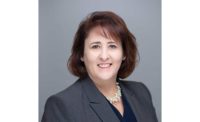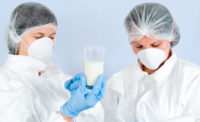Food safety has always been a priority for the American Frozen Food Institute (AFFI), Arlington, Va. Over the past year, AFFI’s Food Safety Working Group has worked to advance food safety by doubling down on Listeria monocytogenes (Lm) prevention through the development of best food safety practices to provide the entire frozen food category with effective frozen food safety protocols.
AFFI’s Food Safety Working Group is comprised of over 70 food safety professionals, microbiologists and food engineers from 42 AFFI member companies. AFFI’s board of directors calls on others in the industry to collaborate and develop common best food safety practices for the frozen food and beverage industry. This action shows that food safety is a non-competitive issue and a continuous process in sharing best practices and learning from each other.
Earlier this year, AFFI released the first resource in a series of food safety best practices covering sanitation, sanitary design of equipment and facilities, process validation and environmental monitoring. The first resource “How to Validate a Blancher,” is an important tool for frozen food manufacturers, as they implement process preventive control requirements as part of the U.S. Food and Drug Administration’s (FDA) Food Safety Modernization Act (FSMA). Frozen food manufacturers can incorporate this new resource into a facility’s food safety plan, as they evaluate the application of their processing equipment for pathogen control and apply appropriate monitoring technologies, ultimately achieving higher Lm control and prevention. After the release of these best practices this fall, AFFI will launch into education and training mode to bring these food safety recommendations to fruition.
One way we’ll measure the implementation of AFFI’s best food safety practices for environmental monitoring is through a new collaboration with Mérieux NutriSciences, Chicago, where Mérieux NutriSciences offers Lm testing and analysis to monitor the effectiveness of pathogen control programs in frozen food facilities. In addition, AFFI and Mérieux NutriSciences will provide blinded, high-level data aggregation, so companies can see how their facilities perform relative to industry peers. The program will provide data to assess progress of Lm control systems within specific frozen food categories, such as frozen fruits, vegetables, breakfast items and entrées. This industry-level analysis will allow AFFI to identify trends and provide real-time response and recommendations.
In addition, AFFI teamed up with EyeSucceed, Ann Arbor, Mich., to transform how the frozen food industry implements these food safety practices and address real-world challenges like high labor costs and employee training. EyeSucceed brings together the power of assisted reality (AR) and smart glass technology. In fact, EyeSucceed has been piloting smart glass livestreaming functionality for the last three years, with food industry clients in the United States, Latin America, Europe and Asia for the last three years. The ability to livestream from around the globe allows the food industry to view first production runs, conduct supplier quality calibration and assist field operations by providing expertise from remote locations while increasing efficiency and saving travel dollars.
EyeSucceed can also be used as an interactive, hands-free training experience for food industry employees. With their hands-free technology, employees can learn intuitively, directly and interactively with the assistance of prompts from expertly-prepared training modules.
Better yet, EyeSucceed will drive consistency of food safety training that is frequently lost with one employee training another, as not all trainers provide the same message. This technology is tailored to a company’s individual facility needs and can transform how the frozen food industry applies food safety best practices.
We’re also teaming up with NSF International, Ann Arbor, Mich., to develop an equipment certification program to be implemented by equipment manufacturers to the frozen food industry. As a result, frozen food manufacturers can rely on a standardized system to purchase equipment that adheres to sanitary design recommendations critical to pathogen control in frozen food facilities.
I encourage you to take advantage of the many tools and resources AFFI has to offer when it comes to food safety best practices and education.







